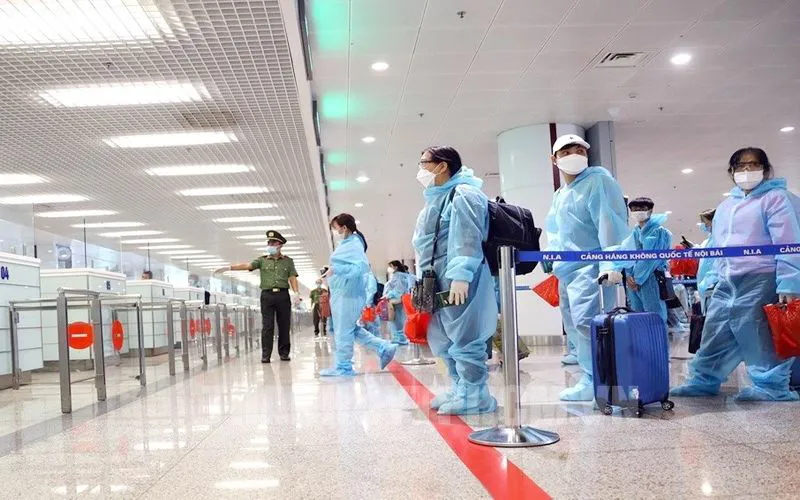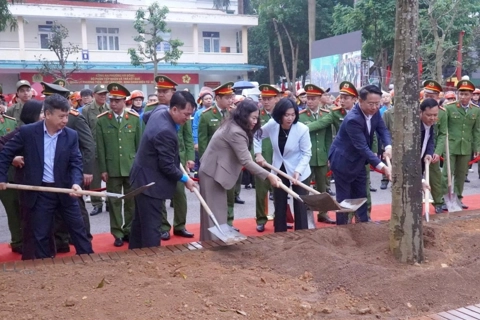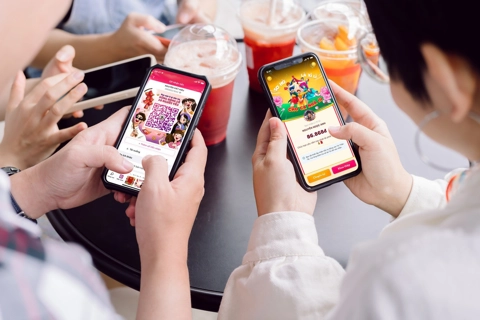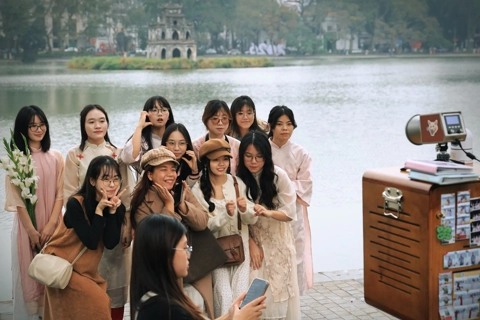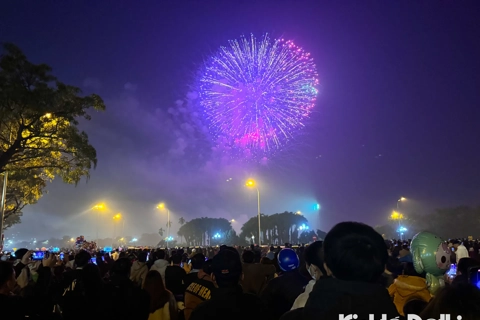Foreigners, overseas Vietnamese facilitated entry procedures
Vietnam partially reopened regular commercial flights on nine international routes on January 1 to China, Japan, Taiwan, South Korea, Thailand, Singapore, Laos, Cambodia, and the US.
Deputy Prime Minister Pham Binh Minh has just issued a dispatch on streamlining entry procedures for foreigners, overseas Vietnamese, and their relatives.
According to the dispatch, foreigners entering Vietnam must be invited or sponsored by Vietnamese agencies, organizations, or individuals in line with the law on foreigners’ entry into, exit from, transit through, and residence in Vietnam.
Air passengers handle entry procedures at Noi Bai International Airport in Hanoi. Photo: Le Bao |
Foreigners, and overseas Vietnamese and their relatives with valid visas can enter the country without undergoing personal examination, visa granting, and visa exemption procedures again. They also don’t need to seek prior permission from the immigration department and local authorities.
In terms of the foreigners who arrive without visas, provincial-level people’s committees will consider approving their entry so as to create optimal conditions for them to work, attend meetings, study, or engage in humanitarian activities.
Meanwhile, ministries, sectors, and central agencies will be responsible for the invitation and reception of their foreign guests, according to the dispatch.
Foreigners wishing to come to Vietnam for tourism purposes, in a short stay, are welcomed under the pilot program on reopening to international tourists.
However, those who want to visit Vietnam for tourism purposes will have to continue following all regulations applied to international tourists.
Before the government gives the green light, anyone that wants to enter Vietnam must prepare a list of papers including approvals from the provincial-level people’s committee and the Department of Immigration, proof of vaccination, PCR test results and a health insurance certificate for quarantine.
Vietnam partially reopened regular commercial flights on nine international routes on January 1 to China, Japan, Taiwan, South Korea, Thailand, Singapore, Laos, Cambodia, and the US.
When arriving in Vietnam, fully vaccinated people and those who have recovered from Covid-19 will have to self-quarantine, either at home, hotels or other facilities, for three days.
They will be tested for coronavirus on the third day. If the results are negative, they will be required to monitor their health for the next 11 days, they are able to move freely outdoor, but are required to avoid large gatherings or crowded places.
Arrivals who are not fully vaccinated will be self-isolated for seven days, then be tested on the 3rd and 7th days. They must pay for their PRC tests.


